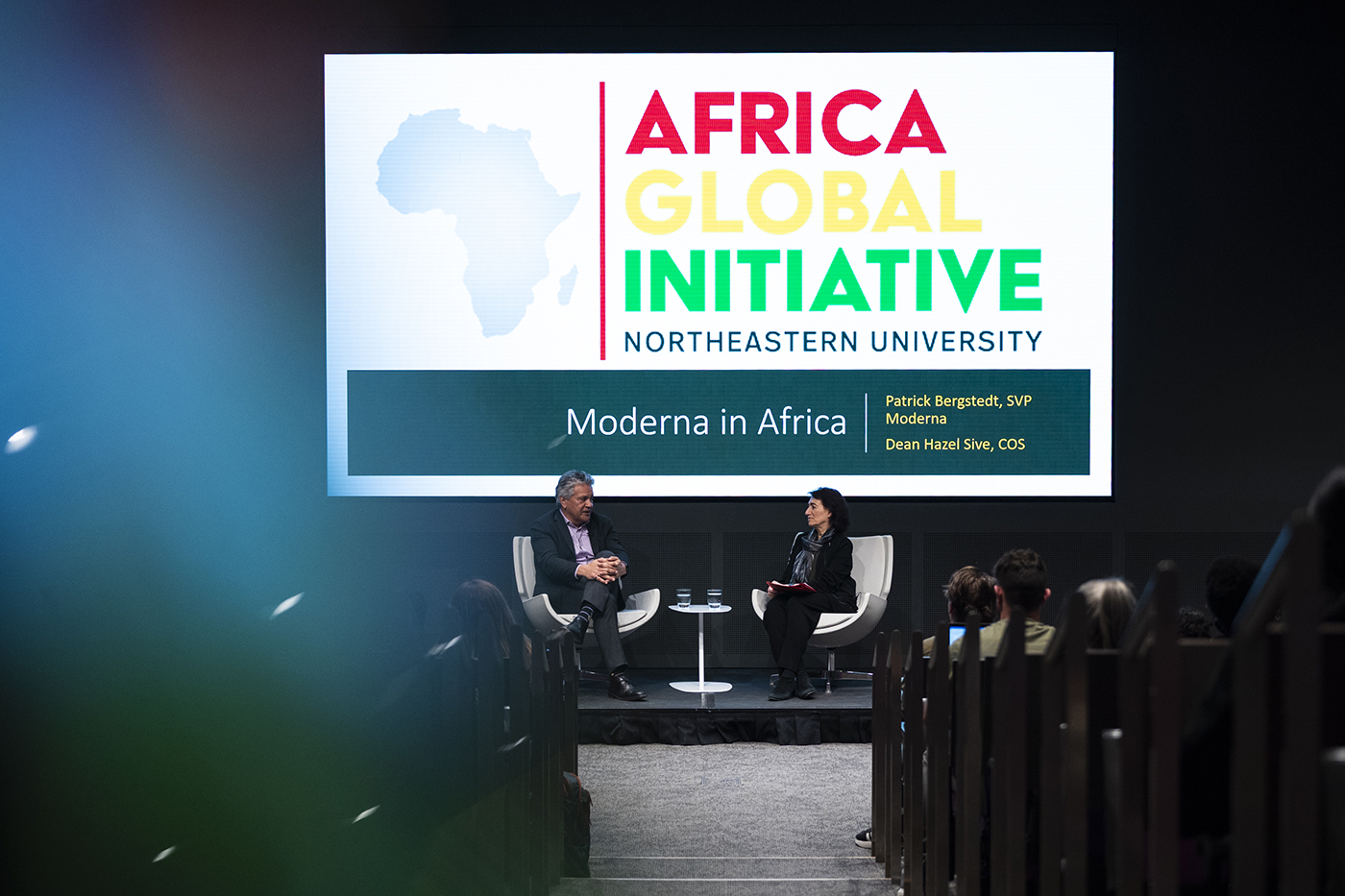When Patrick Bergstedt was initially in talks to join Moderna Inc. in February 2020, the pharmaceutical and biotechnology company was preparing to get a commercial messenger RNA (mRNA) vaccine to the market by 2024 or 2025, Bergstedt said. When he joined the company in June 2020, the world was in the grips of a frightening new illness, and its scientists were working day and night to get a vaccine ready, not in four or five years as they had planned, but in a year or less.
“Moderna went from a company that made thousands of doses of vaccine to a company producing 800 million doses by the end of 2021,” Bergstedt told an audience in Northeastern’s Interdisciplinary Science and Engineering Complex during an event sponsored by the university’s Africa Global Initiative. He joined Hazel Sive, dean of the College of Science and chair of the Africa Global Initiative, for a conversation on Wednesday.
“It was a crazy time,” said Bergstedt, who is currently the senior vice president of commercial vaccines at Moderna. “People were sleeping on the floors, working all hours of the day to get this vaccine out the door as fast as possible.”
As we now know, they did it. Moderna is one of three companies that received emergency use authorization from the U.S. Food and Drug Administration for its COVID-19 vaccine, and millions of shots have gone into the arms of people across the country and around the world.
Already, the Cambridge, Massachusetts-based company employs dozens of Northeastern co-op students and alumni. And, in 2021, the two institutions established a fellowship for a postdoctoral researcher to get hands-on experience in drug discovery, development, delivery, and evaluation.
So, what’s next for Moderna? Global investment. The company announced in March that it would set up a manufacturing facility in Kenya to produce mRNA vaccines, including COVID-19 shots.
The company plans to invest about $500 million in the facility and supply as many as 500 million doses of mRNA vaccines to the African continent each year, Bergstedt said.
“The idea is to help provide the continent with its own sustainable supply of vaccines, long-term,” Bergstedt said.
Read more on News@Northeastern.
Photo by Alyssa Stone/Northeastern University.

